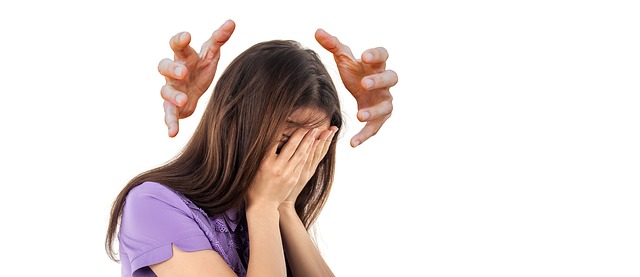Mood disorders are represented by serious changes in emotional that reason disruption to normal life. However several conditions are perceived, while three are major such as depressive, hyper, and bipolar.
Depressive is characterized by overall mood disappointment. The hyper mood is described by hypomania or mania; in this situation, a person can get angry. This condition negatively effects on brain cells. Bipolar mood exists between both depressive and manic.
Studies prescribed, everyday life is an exciting ride of feelings or emotions. You may feel happy with regular changes in your life, often a significant change in your life can’t feel you wonder. We all need to understand our lives always goes on different circumstances.
Sometimes you may feel down due to family or relationship issues, another day you may experience money related inconveniences, or you get tired on the workplace due to a few work issues. All of these are ordinary situations of mood that come and go in life. But if you don’t manage them properly, they can negative impacts on your daily activities, social behavior, educational, relationships, and you might experience a mood disorder.
Table of Contents
Some common mood disorders include:
- Major depressive disorder — it is drawn out and tireless times of extreme depression and sadness.
- Bipolar disorder — it is also known as hyper wretchedness (manic depression) or bipolar emotional disorder, depression that adds in substituting times of despondency and insanity.
- Seasonal affective disorder (SAD) — you can say it Seasonal feeling issue, it is the most common type of depression that related with fewer hours from morning to the evening after that it goes down, and you feel relax.
- Cyclothymic disorder — in this condition your emotional goes ups and downs that are less dangerous than bipolar disorder.
- Premenstrual dysphoric turmoil — it is an irritability condition of mood that happens when you don’t you see some places, objects, and even sometimes you don’t like to talk your loved one.
- Persistent depressive disorder (dysthymia) — Persistent depressive disorder occurs due to depression, that effects for long-term.
- Disruptive mood dysregulation disorder — a disturbance in the mood, it is a serious and irritability condition that often found in youngsters during developmental age.
- Depression related to medical illness — a tireless or depressed mood, and a person loses his pleasure in all activities that are directly related to the physical impacts and another health condition.
- Depression induced by substance use or medication ― depression side effects occur during or after using specific substances or drugs.
For many people, mood disorders problems can be effectively managed with therapy (psychotherapy) or medications.
What Causes Mood Imbalances?
It is challenging to pinpoint the causes of mood imbalances. Experts say those mood imbalances caused by a combination of environmental, ecological, mental, natural, biological and hereditary factors.
Few theories added that mood disorders cause of neurotransmitters, which are synthetic concoctions in the brain that lead to anxiety and depression. However, all arguments and searches have not verified the causes of Mood imbalances.
Researchers are as yet concentrating the reasons for the mood disorder; however, the consensus is that mood imbalance is brought about by a few components working together.
As mood disorder issue inclines to be hereditary, analysts are right now attempting to discover a genetic factor that may expand the risk of creating the mood disorder.
Brain imaging researches demonstrate that the minds of a person with depression and mood imbalance work differently as compare healthy brains. Thus there are few things clear brain structure play a vital role in the development of mood disorders.
Symptoms of Mood Disorders
It is clear that Emotional symptoms of Mood Imbalances are not the same for all people. Mood Disorders include:
- A person may think to attempts a suicide
- Loss of interest in activities
- Decreased energy or fatigue
- Body aches, pains, cramps
- Always stay in the past
- Insomnia
- Hypersexuality
- Hedonistic, Impulsive or risky behavior
- Feelings of emptiness, Unyielding anxiety, sadness
- Feelings of guilt, worthlessness,
- Often experience helplessness, hopelessness or pessimism
- Restlessness
- Irritability, excessive energy or agitation
- A person may Feel grandiosity
- Prolonged periods of elation
- Headaches, digestive problems
- Difficulty remembering details, making decisions or concentrating
- Overeating
- Loss of appetite
- Insomnia or may experience Excessive sleeping
- Racing thoughts and quickly jump from the next idea
- Often rapid or Pressured speech
- Being easily confused
Treatment Options
Mood disorders problems are often deal with meds and psychotherapy. Even these health conditions can be managed with treatment. Commonly, antidepressants and anti-anxiety medications are used to deal with mood disorders or emotional distress. Sometimes brain specialists recommend medications with psychotherapy.
You can use the best CBD capsules to give cannabinoids naturally in the body. It works as a body booster. It supports the endocannabinoid system to balance cell. It is not only used for the endocannabinoid system to balance cell but also helps to improve sleep, regulate appetite, reduce pain, as well as it can help to control mood disorders. Some mood disorders, such as bipolar depression or Persistent depressive disorder, are often managed with lifelong medication, and it is combined with psychotherapy.
Alex is fascinated with “understanding” people. It’s actually what drives everything he does. He believes in a thoughtful exploration of how you shape your thoughts, experience of the world.

